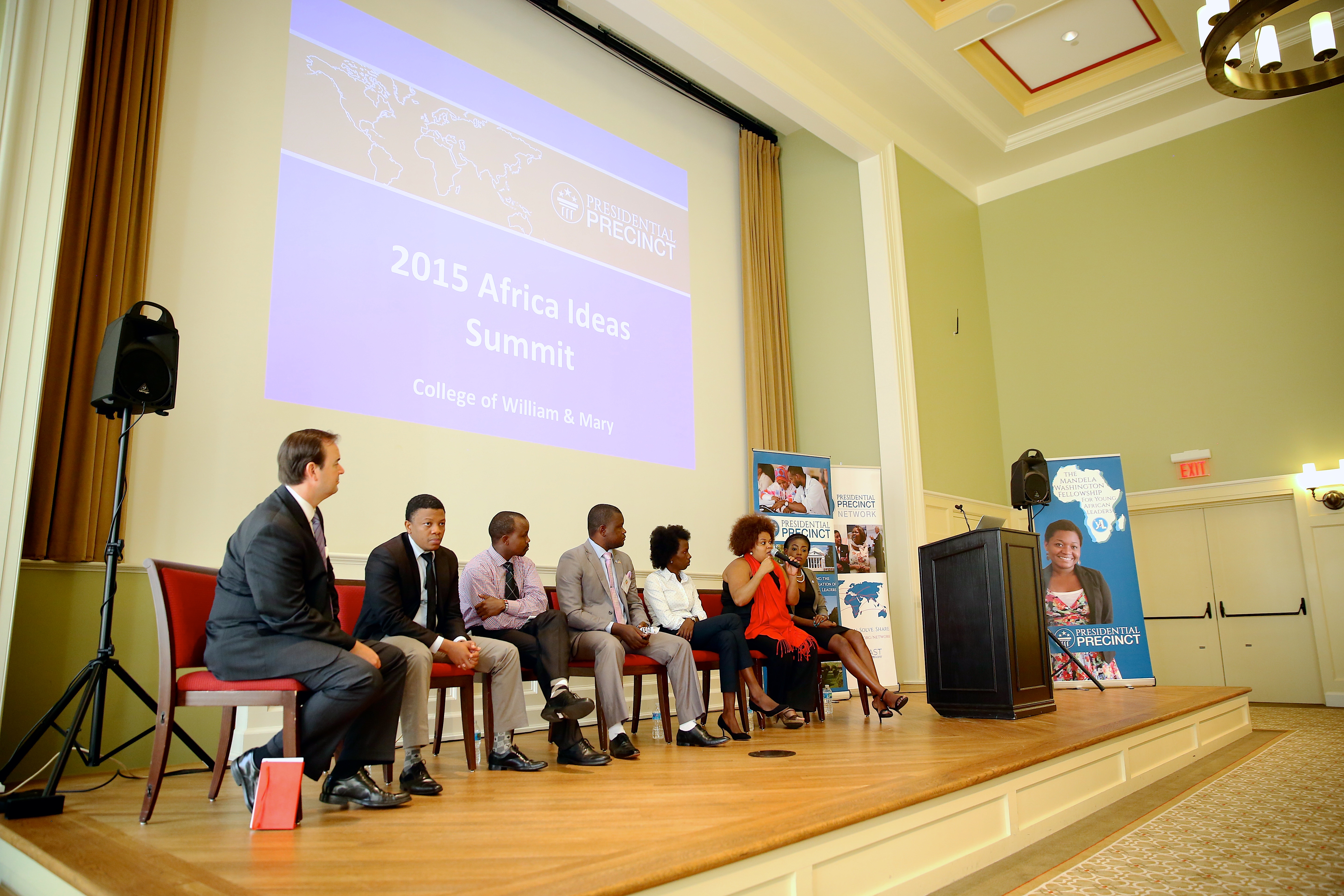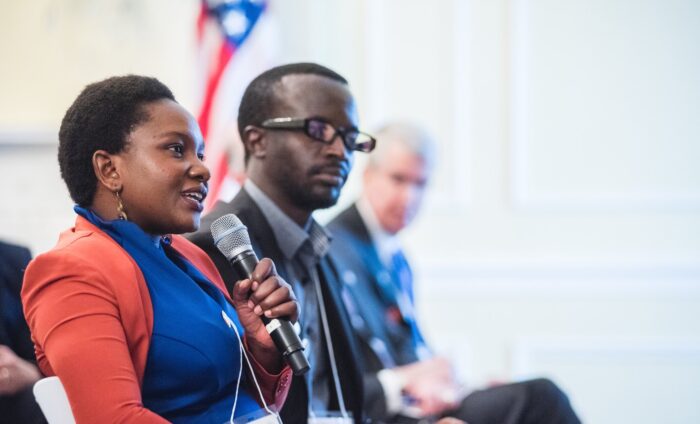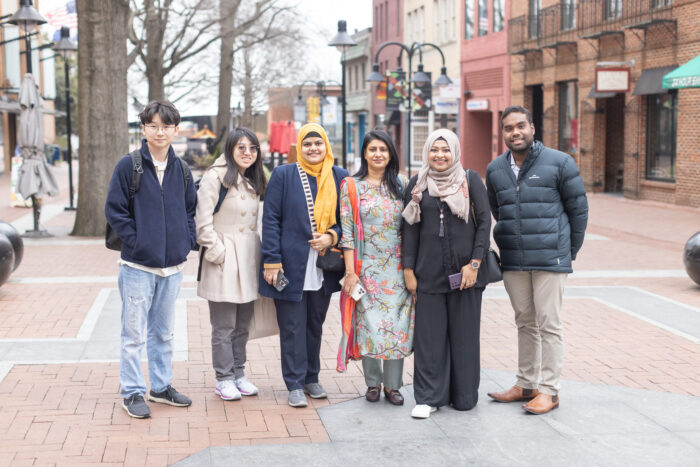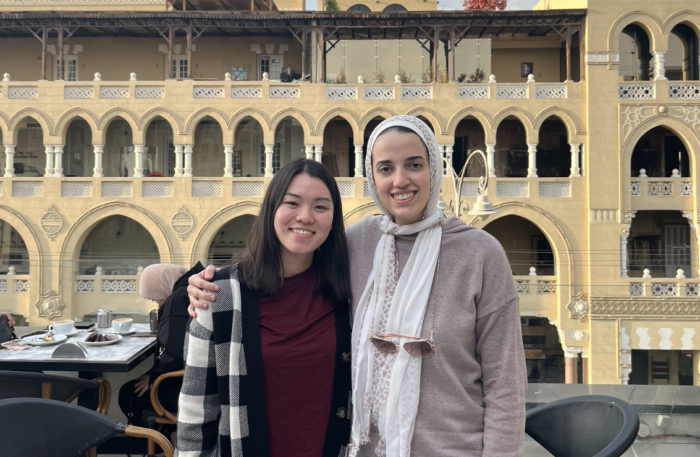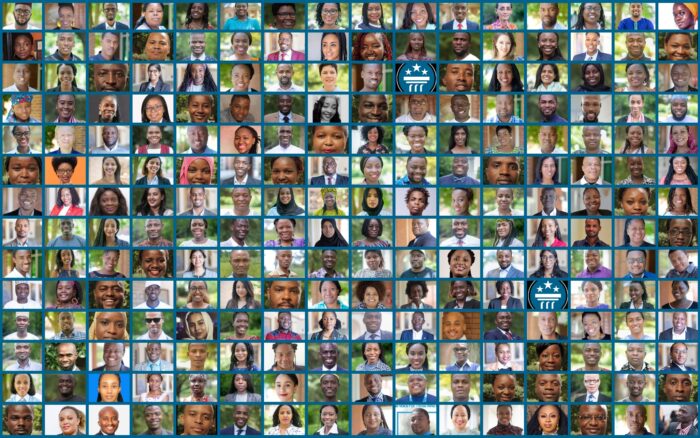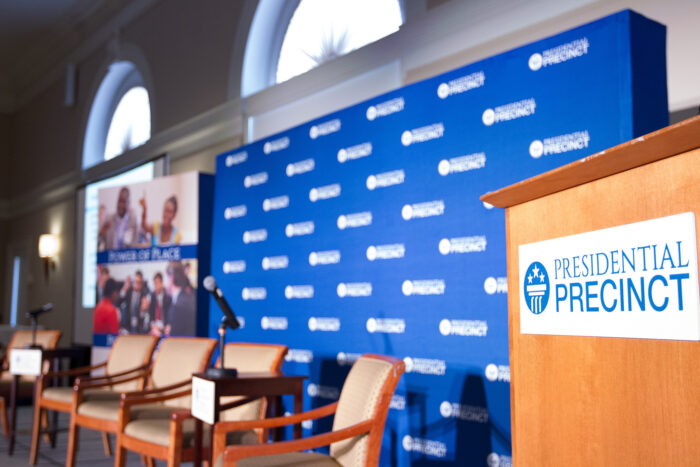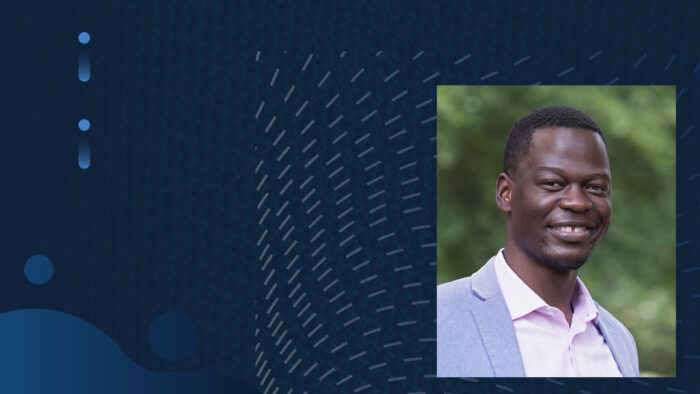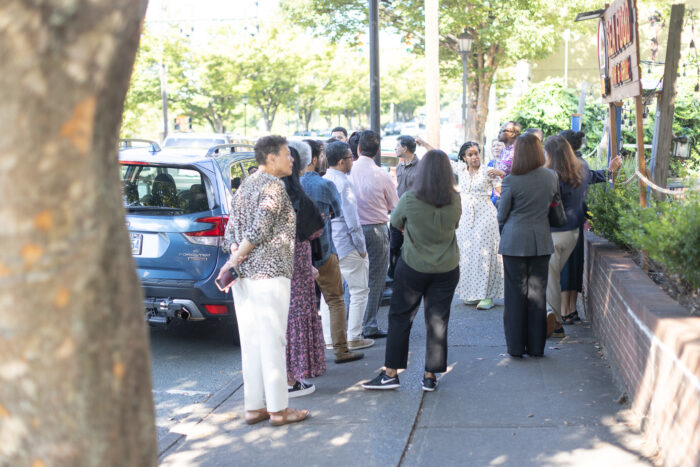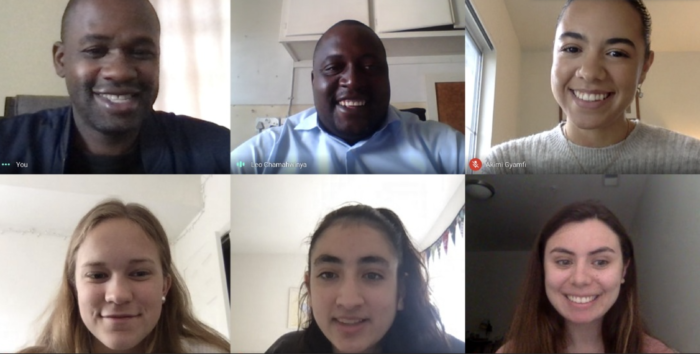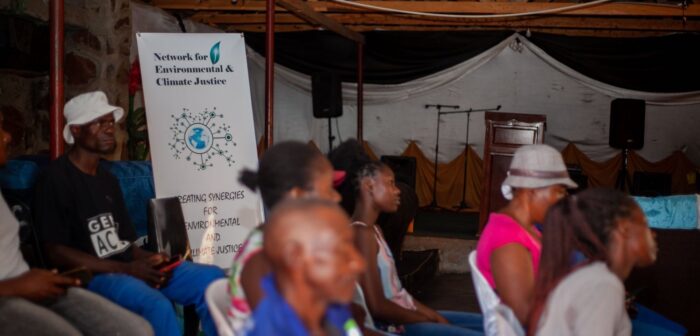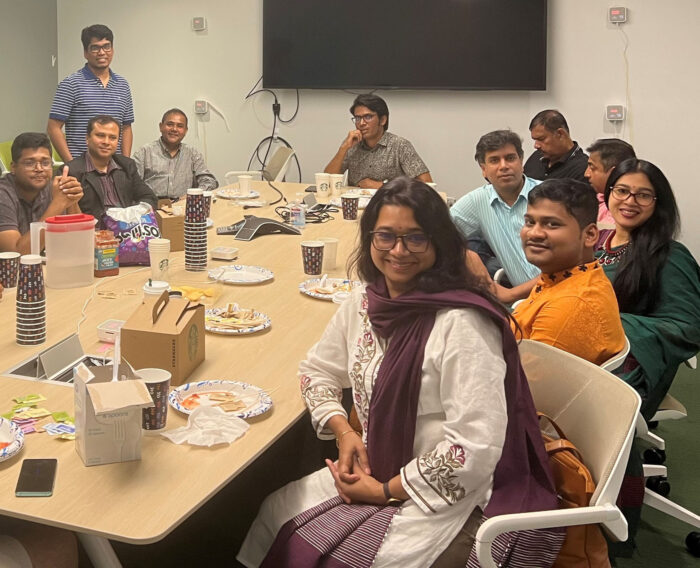Turning Young Leaders into Persuasive Agents for Change
The second annual cycle of the Young African Leaders Initiative – also known as the Mandela Fellowship – is coming to a close. These leaders, chosen from tens of thousands of applicants, have often overcome personal and societal challenges that can make our own accomplishments seem trivial in comparison.
Chaski Global was honored to lead a one-day communications training for 25 of the Fellows hosted by the Presidential Precinct, a consortium of universities and presidential homes based in Charlottesville, Virginia. This type of workshop cuts across professional backgrounds to create a level playing field with regards to storytelling, providing insights that help lawyers, journalists, policy advocates and aspiring politicians alike.
Toward the end of their fellowship, our efforts were rewarded when we watched each of the participants present at the Ideas Summit, the precursor to a select group making their presentation again later at the White House. Each Fellow used 5 slides, with a maximum time allotment of 5 minutes, to address a critical issue and outline a solution.
Their performance (and improvement) aside, what really thrilled us was the knowledge that we had contributed to the development of a critical skill at a critical time for these rising leaders. When the Fellows return to their home countries, they enjoy a limited window via the media and meetings with senior government and private sector officials to leverage their experience and translate their passion into a launch point for a career.
What we witnessed at the Ideas Summit was the transformation of knowledgeable and experienced young leaders into next generation masters of persuasion, utilizing a few moments of engagement to make an impact and create an opportunity to start a process of change.
Here are six tips we shared with the young African leaders, and why they work:
1. Use accessible data points to build context for your key message.
“I walked 1,000 km each year to get to school.” Freddy is a Masaii from Kenya who is working to empower women and bring education to his community in part through solar power. Making the audience visualize a 1,000 km immediately commandeered their attention – in a way in which everyone could imagine. When Freddy made the connection for an American audience, that 1,000 km equates to 24 marathons – per year – to get an education, the hardest part of his job was done. Everyone was in the palm of his hand.
2. Impactful quotes can be easily repeatable soundbites.
Many of the African Fellows used simple metaphors that were relatable, and thus repeatable. For example, Averty from Congo stated, “he who wants the rain, must love the mud.” In this case, the saying has been passed down for ages, which helps validate the notion through an association with wisdom. Using such a quote also helps the speaker enter a “campaign mentality” where soundbites are often as important as key messages. Mirabel Ngong from Cameron created a slogan – “empower a woman, empower a nation” – as part of a presentation at the GirlUp Let Girls Learn Summit with first Lady Michelle Obama. She has repeated it ever since to help tell her story and bring momentum behind her project.
3. Don’t be afraid to stop, pause and be aware of your tone.
Raise your voice for impact and pause to let the information sink in. This is one of the key lessons we teach in our trainings and one that can be perfected through practice. Especially in an engagement where time is of the essence, the effect of a well-placed pause can magnify the impact of the overall message. At the same time, raising one’s voice in the hopes of enhancing persuasion can often have the opposite effect.
4. Use a personal anecdote as a point-of-entry to a larger policy discussion.
Aruna Kallon from Sierra Leone described the kidnapping of his niece – by her own mother – and her subsequent death following female genital mutilation. He leveraged his immediate command of the room to discuss the breadth of the problem in his community, his country and throughout Africa. It helped connect with the audience on a personal level, setting the table to highlight the continuing massive scale of the problem and the urgent need for a solution.
5. Grab people’s attention with the unpredictable.
Fernanda Lobato from Mozambique began her presentation by pointing at the Americans in the audience and telling them “they have something she doesn’t.” This immediately got the audience thinking of what it could be…the answer is freedom of speech. The trick to a bombastic approach is bringing the presentation back to a predictable, relatable path quickly once all are dialed in on the key topic.
6. Act like you belong.
Poise and having a sense of belonging is one of the most important aspects of any presentation. Where it is easy to be overcome by nerves, the successful presenter must accept the moment, own it, and move forward. It was this poise that helped single out Grace Jerry from Nigeria – one of our Fellows from the Presidential Precinct – as the young leader selected to introduce President Barack Obama on stage at the Presidential Summit in August. Her composure, and passionate yet level delivery about her key issue, stole the show. She could have wilted under the pressure of making the introduction from her wheelchair, but instead fully rose to the occasion. In this case, a picture truly is worth a thousand words.
Learn more about our training capabilities and other services at www.chaskiglobal.com.

